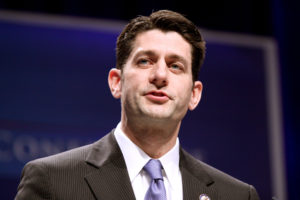DENVER, Colo. – After Donald Trump won last week’s election in what many journalists referred to as a “stunning victory,” healthcare professionals across the nation were left wondering how this would affect their industry. To gain a sense of what Colorado’s health innovation community thought the future might hold, we asked several of its members, “What will a Trump presidency mean for digital health?”
“It’s really hard to say what impact a Trump presidency will bring,” said Tom Base, managing director of the Boomtown Health-Tech Accelerator. “There is a lot more unknown than is known at this point.”
Dr. James Dickhoner, head of product and data at Orderly Health, echoed Base’s assessment. “I don’t know what Trump means for healthcare. I don’t think anyone really does, and that uncertainty is terrifying for both entrepreneurs and investors.”
Kevin Krauth, Orderly Health’s CEO, explained why this uncertainty was so unsettling. “One of the keys to creating a company within a highly regulated industry is to have a clear sense of the problems you are solving and how those problems might change in a changing political environment.”
According to the individuals interviewed for this article, the promises made by Trump on the campaign trail to “repeal and replace” the ACA were the source of their uncertainty.
“Donald Trump made the bold statement that he would repeal the ACA, but details are scant,” said Dr. Kenneth Bellian, the co-founder of AI Health. “We all fear what this means for the United States, but, more specifically, for the patients and businesses in the healthcare ecosystem.”
At the prospect of a repeal of the ACA, Patrick Leonard, CEO of ListenMD, sounded a note of caution. “I would urge the incoming administration and Congress to look carefully for the things that are working in healthcare reform before making changes. Much of the innovation in healthcare over the past six years has been made possible by reforms from the Obama administration.”
But Nicole McNew, a Denver-based community health strategist, downplayed the possibility of a total repeal. “Despite the rhetoric, I believe, perhaps optimistically, that it is unlikely that the ACA will be fully repealed. However, decreased funding of the CMS Innovation Center or the National Institutes of Health could certainly have a ripple effect on efforts to pilot new payment models.”

House Speaker Paul Ryan’s ACA replacement plan might provide a sense of what to expect from a Trump administration. [Credit: Gage Skidmore]
Yet while all of the individuals contacted for this article were uncertain as to what the future might hold for healthcare policy, each was confident that the conditions that had motivated the adoption of the ACA would continue to drive innovation within their industry.
“Obviously it’s unclear exactly what form the new healthcare legislation will take to replace or improve the Affordable Care Act,” said Jeffrey Nathanson, president and CEO of Prime Health. “What is clear is our economy cannot sustain a healthcare system without access, engagement, affordability, and quality outcomes.”
“The core issues of healthcare cost, efficiency, and quality that the ACA addresses will never go away,” agreed Michael Willis, the CEO of MedAware Systems. “Whatever replaces the ACA will undoubtedly need to address these core issues, which are often best addressed by digital health tools.”
Their optimism seemed rooted just as much in the clear need for innovation within the healthcare system as it was in the power of entrepreneurship to deliver that innovation despite an uncertain policy environment.
“In the long term, a dynamic healthcare landscape benefits startups because they can meet the needs of a shifting market more rapidly than an established company,” said Dickhoner. “At the end of the day, great companies come of age during the most difficult times, and as always I am optimistic about the future.”
“Even if the ACA is scrapped, it seems like the genie is out of the bottle as far as innovation is concerned, and I have a hard time imagining CMS would slow down their shift to value-based care payments,” added Base. “The rising cost of care is unsustainable and needs to be addressed with or without the ACA, so I’m hopeful that the momentum will continue once we get through this period of uncertainty.”
Yet not everyone was willing to promote such an optimistic outlook. Perhaps motivated by the failure of pundits to predict a Trump victory, Dr. Arlen Meyers, president and CEO of the Society of Physician Entrepreneurs, offered the following advice.
“Don’t believe what people like me have to say about what will happen in the future. Create your own future and adapt to the inevitable change that is happening regardless of who occupies the White House.”
Like the coverage that CyberMed News provides? Follow us on Twitter, LinkedIn, and Facebook to keep up-to-date on the latest developments in digital health.





Be the first to comment on "What Will a Trump Presidency Mean for Digital Health?"